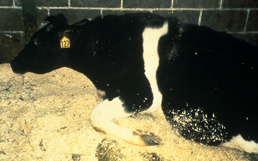Beer Science Roundup
Brewing beer is an art, but a new beer analysis project could make it more of a science.

Brewing beer is an art, but a new beer analysis project could make it more of a science.

ANIMALS: How dolphins breathe, sea snails that hide their gender, the genetics and epigenetics of ant colonies, and looking mad-cow disease in the eye.
A new hypothesis suggests that life began between ultra-thin sheets of minerals.
Salt used to de-ice snowy streets causes damage to both roadways and waterways.
Designing instruments for planned missions to explore Jupiter's many moons requires a combination of scientific acumen and engineering skill.
ANIMALS: A new way to sample dolphin DNA, pain-relief from sea snail venom, beetles born with bifocals, and why pigeons bob their heads when they walk.
A listener asks: how long should you wait after applying sunscreen before going outside?
Tibetans have a unique genetic adaptation that allows them to survive high altitude, low oxygen conditions.
The effect of climate change on the world's oceans may have dire consequences for humans.
SUNSCREEN & SUPPLEMENTS: Sunscreens from ivy, why tanning oil speeds up skin damage, and when to apply sunscreen. Also: the link between fructose and pancreatic cancer, and over-the-counter weight-loss supplements fail the grade.
Bacteria find thawed arctic soils really yummy. That might be good for the bacteria, but it could be bad for the planet.
CLIMATE CHANGE UPDATE: The potential effects of climate change on the world's oceans, how global warming could influence carbon dioxide levels in the Arctic, and the search for more efficient air conditioners.
HEALTH & THE ENVIRONMENT: Cutting down the Amazon rainforest leads to increased rates of malaria, tracking plastic debris in the Atlantic Ocean, choosing between "organic" and synthetic pesticides, and more.
Researchers test a smoking vaccine, the relationship between schizophrenia and creativity, and post-partum depression in men.
Installing chemical sensors in cell phones could create a worldwide system for identifying dangerous airborne toxins.
A prototype artificial pancreas automatically regulates blood sugar in diabetic patients.
